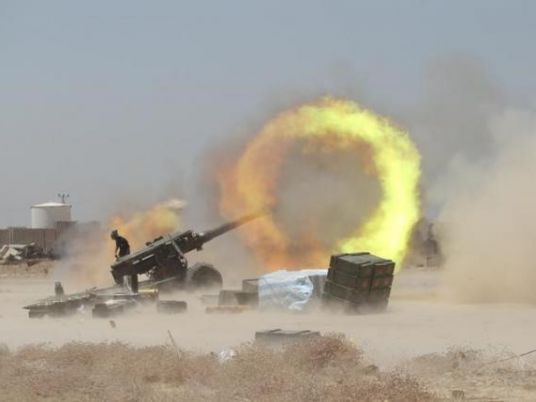
Iraqi Kurdish fighters battling Islamic State in northern Iraq unlawfully destroyed Arab homes in scores of towns and villages in what may amount to a war crime, U.S.-based rights group Human Rights Watch said on Sunday.
The Kurdish peshmerga and Iraqi armed forces have faced a common enemy in Islamic State since the militants took over large parts of Iraq in 2014. Iraqi troops and Kurdish fighters make up the 100,000-strong, US-backed alliance currently battling to retake Mosul.
But animosity persists, going back to decades of mistreatment of Kurds by ruling Arabs in Baghdad, especially under Saddam Hussein. Reuters found last month that Kurds are using the battle against Islamic State to settle old disputes and grab land in ethnically mixed territory separating the Kurdish region in the north from the majority Arab south.
Human Rights Watch said in its report that violations between September 2014 and May 2016 in 21 towns and villages within disputed areas of Kirkuk and Nineveh provinces had followed "a pattern of apparently unlawful demolitions".
The areas are nominally under the jurisdiction of Baghdad but are controlled by the Kurdistan Regional Government (KRG). The Kurdish region has taken in more than 1 million people from elsewhere in Iraq, who have been displaced by the conflict, most of them Sunni Arabs.
The KRG has denied any systematic policy of destruction of Arab homes, but said peshmerga had carried out demolitions for security reasons such as clearing booby-trapped homes.
The HRW report is based on more than a dozen field visits and interviews with over 120 witnesses and officials. Analysis of satellite images suggests property destruction targeted Arab residents long after any military necessity for such actions had ended.
"In village after village in Kirkuk and Nineveh, KRG security forces destroyed Arab homes – but not those belonging to Kurds – for no legitimate military purpose," said Joe Stork, deputy Middle East director at HRW.
The satellite imagery provides evidence of destruction in 62 other villages following their capture by Kurdish security forces, but HRW said a lack of witness accounts made it difficult to determine cause and responsibility in those instances.
Kurdish officials have stated their intention to absorb land recovered from Islamic State into their autonomous region and prevent Arab residents from returning to areas "Arabised" decades ago by Saddam Hussein.
Dindar Zebari, the head of a KRG's committee tasked with responding to international reports, said authorities had carried out a thorough investigation, examining cases in individual villages.
"There was a strategic intention for the destruction of houses or a number of these villages," Zebari told reporters in Erbil.
"The large presence of IEDs placed in these areas, especially in civilian properties, has been a huge cause of the destruction following the liberation process.
"Sometimes we have no choice … before entering a village you destroy as much as you can to make sure everything is safe."
Zebari attributed much of the rest of the damage to US-led coalition air strikes on IS positions or to exchanges of artillery fire during fighting.
He said militiamen allied to the peshmerga had demolished some homes in apparent revenge, but denied peshmerga participation in those cases.
HRW called on the United States and other members of an international coalition backing Iraqi forces in the fight against Islamic State to pressure the Kurdish authorities to end the demolitions.




